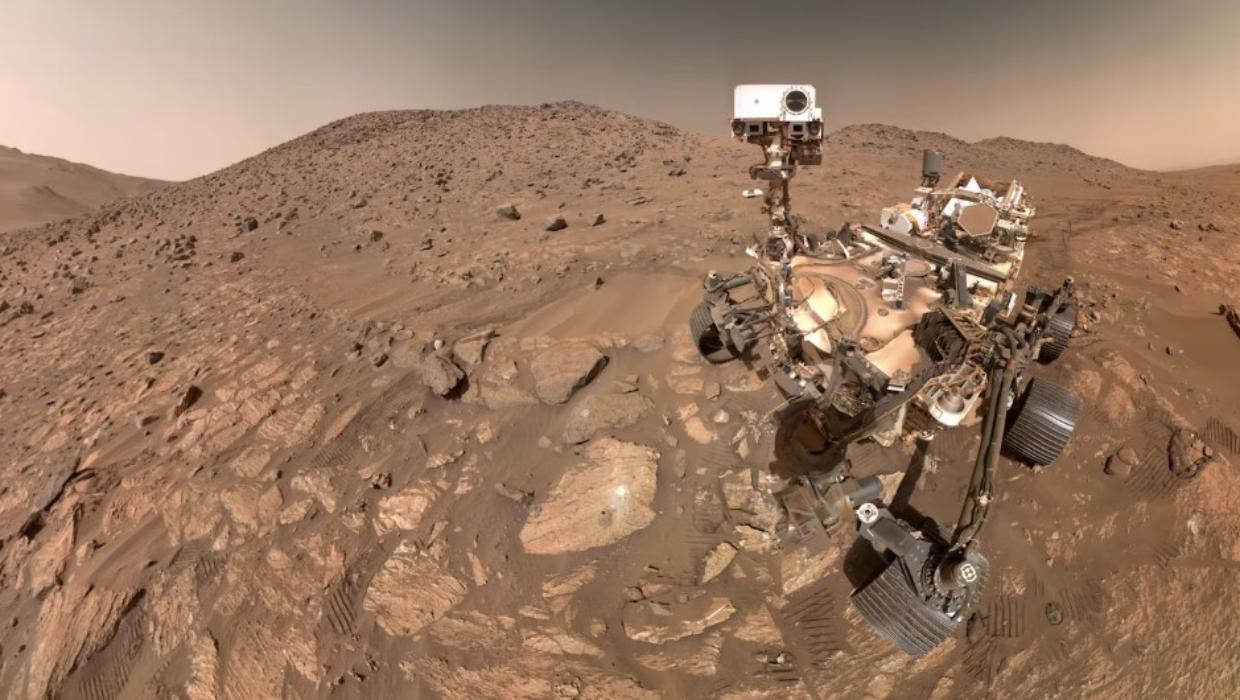Science
NASA Reveals Significant Discovery of Potential Life on Mars

NASA has announced a groundbreaking finding from its Perseverance rover on Mars, identifying what could be a significant biosignature. Detailed analysis of images captured by the rover has revealed speckled rocks in the Jezero Crater that scientists believe may indicate the presence of ancient microbial life.
The images, taken during the rover’s ongoing mission, show a variety of rock formations that appear to contain organic materials. These discoveries are a crucial step in understanding Mars’ past, as the planet once had conditions suitable for life. The analysis is part of a broader effort by NASA to explore the potential for past life on Mars and to gather data that could support future human exploration.
Researchers at NASA’s Jet Propulsion Laboratory, which manages the Perseverance mission, emphasized the importance of this finding. According to Dr. Ken Farley, a project scientist for Perseverance, “This is the clearest sign of life that we’ve ever found on Mars.” The team is now focused on further investigating these rocks to confirm the presence of biological materials.
The Jezero Crater, where the rover landed in February 2021, was chosen for its rich geological history and evidence of ancient water flow. Scientists believe that if life existed on Mars, it would have thrived in such environments. The rover’s findings not only spark curiosity but also enhance our understanding of the planet’s climate and geologic processes.
In addition to identifying potential biosignatures, Perseverance continues to collect samples for future return to Earth. These samples will undergo rigorous testing to determine their composition and any signs of ancient life. NASA plans to collaborate with the European Space Agency on a mission to retrieve these samples, which could occur as early as the 2030s.
As the Perseverance rover continues its exploration, the implications of these findings could reshape our understanding of life beyond Earth. The mission aligns with increasing global interest in astrobiology and the exploration of other planets. The excitement surrounding this discovery reflects humanity’s enduring quest to find answers to profound questions about our place in the universe.
This latest revelation is expected to be presented at upcoming scientific conferences, where experts will discuss its implications for future Mars exploration and the ongoing search for extraterrestrial life. The findings underscore the importance of continued investment in space exploration and the scientific inquiry that drives our understanding of the cosmos.
NASA’s Perseverance rover mission exemplifies a significant leap forward in the exploration of Mars, and the potential for groundbreaking discoveries continues to motivate scientists and researchers worldwide.
-

 World3 weeks ago
World3 weeks agoPrivate Funeral Held for Dean Field and His Three Children
-

 Top Stories3 weeks ago
Top Stories3 weeks agoFuneral Planned for Field Siblings After Tragic House Fire
-

 Sports3 months ago
Sports3 months agoNetball New Zealand Stands Down Dame Noeline Taurua for Series
-

 Entertainment3 months ago
Entertainment3 months agoTributes Pour In for Lachlan Rofe, Reality Star, Dead at 47
-

 Entertainment2 months ago
Entertainment2 months agoNew ‘Maverick’ Chaser Joins Beat the Chasers Season Finale
-

 Sports3 months ago
Sports3 months agoSilver Ferns Legend Laura Langman Criticizes Team’s Attitude
-

 Sports1 month ago
Sports1 month agoEli Katoa Rushed to Hospital After Sideline Incident During Match
-

 World4 weeks ago
World4 weeks agoInvestigation Underway in Tragic Sanson House Fire Involving Family
-

 Politics2 months ago
Politics2 months agoNetball NZ Calls for Respect Amid Dame Taurua’s Standoff
-

 Top Stories3 weeks ago
Top Stories3 weeks agoShock and Grief Follow Tragic Family Deaths in New Zealand
-

 Sports2 weeks ago
Sports2 weeks agoEli Katoa Shares Positive Recovery Update After Brain Surgery
-

 Entertainment6 days ago
Entertainment6 days agoJacinda Ardern Discusses Popularity Decline on Graham Norton Show





















